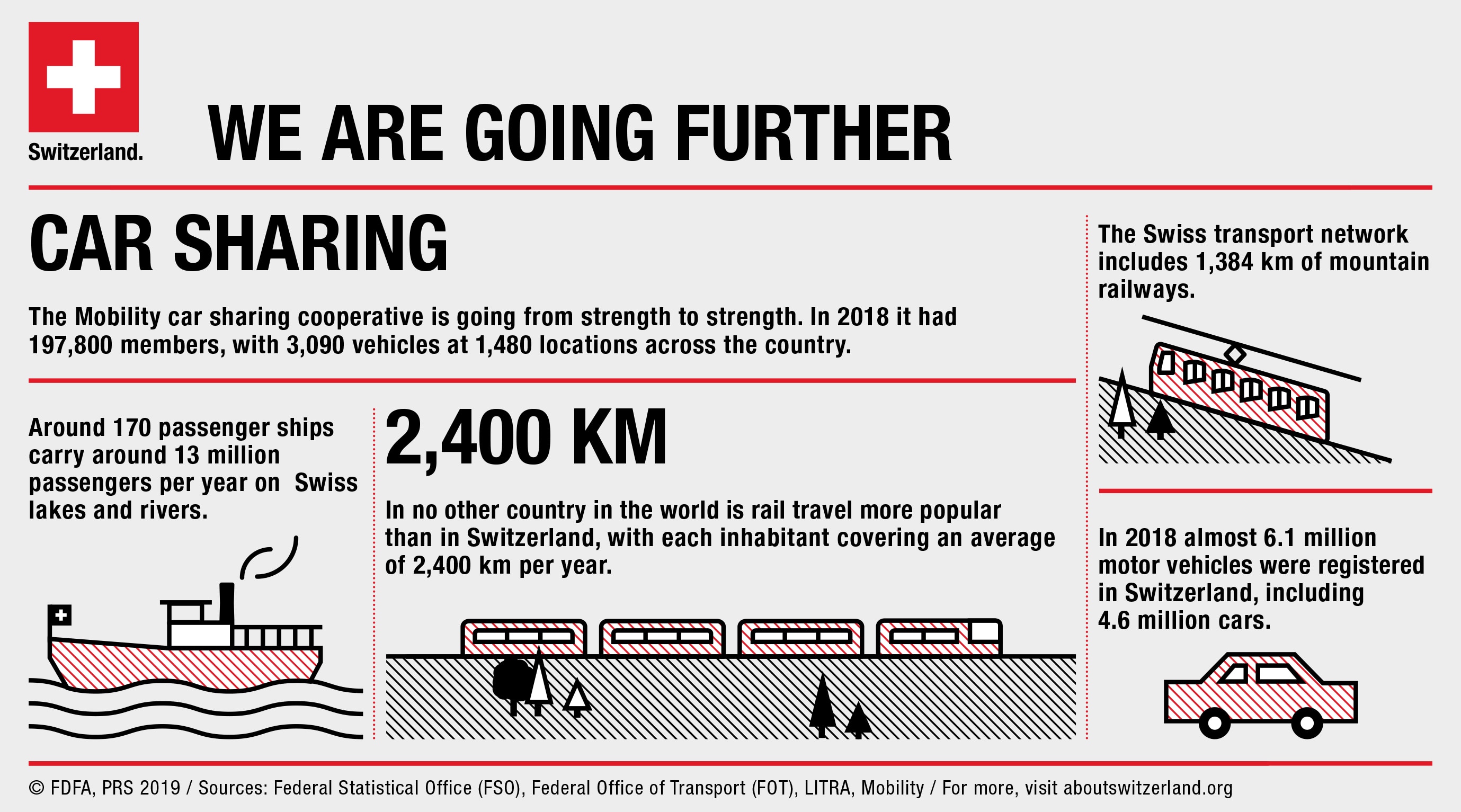With its prime location in the heart of Europe, Switzerland has a dense transport network which makes it easy to travel in all directions, both within and outside the country.
Mobility

The Swiss population is very mobile. In 2015, they travelled a total of 129.7 billion kilometres, which works out at an average of over 15,575 kilometres per person (excluding air travel). Around three-quarters of these kilometres were travelled in private motorised transport. The number of kilometres travelled in private motorised transport and public transport has doubled in the last 50 years.
Motorised road vehicles are by far the most popular form of transport in Switzerland. Roughly 5.9 million motorised vehicles were licensed in 2016, of which 4.5 million were cars. This is almost twice as many as in 1980. At the same time, car-sharing schemes have grown in popularity. The Mobility cooperative, which was founded in 1997, now has over 131,700 members and has around 2,950 vehicles stationed at 1,500 sites across the country.
Nine out of ten workers in Switzerland travel to work. One-third use public transport to get there and the average commute time is 30 minutes. The Swiss prefer to take the train for intercity journeys. On average, they travel 2,400 km by train every year. In 2016 Swiss Federal Railways carried a total of 458 million passengers.
The Swiss travel by air between five and six times a year, covering an average distance of 9,000 kilometres, with four out of five flights for leisure purposes. More than one third of the total distance covered by Swiss travellers each year is therefore by air.

